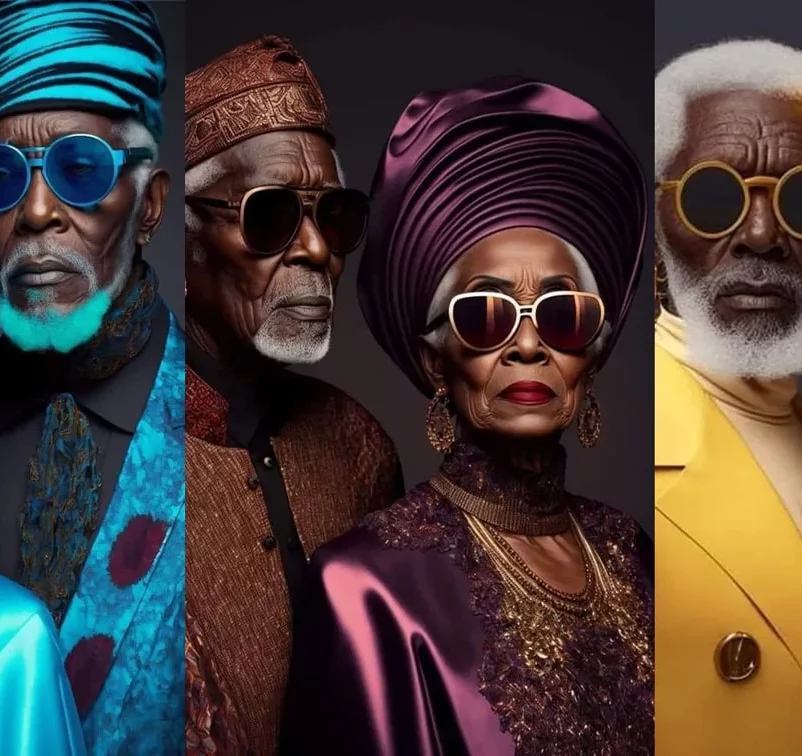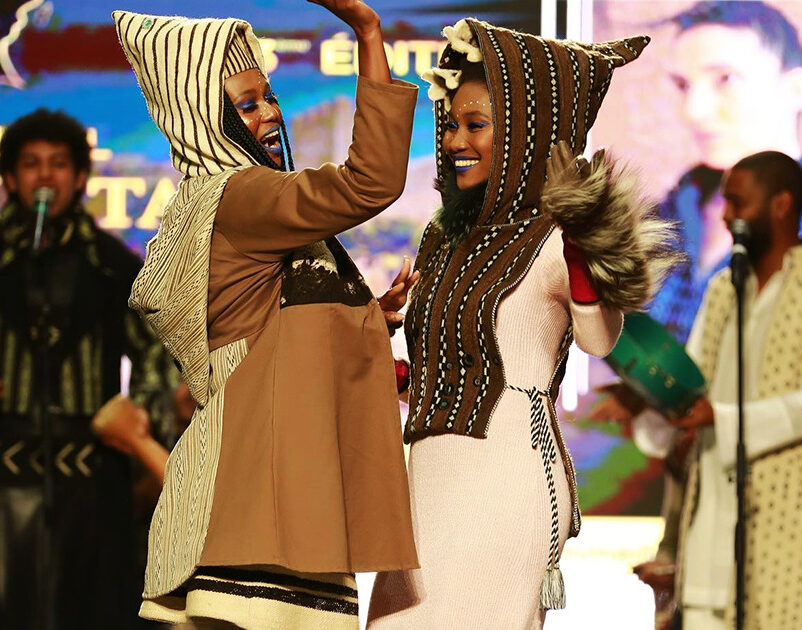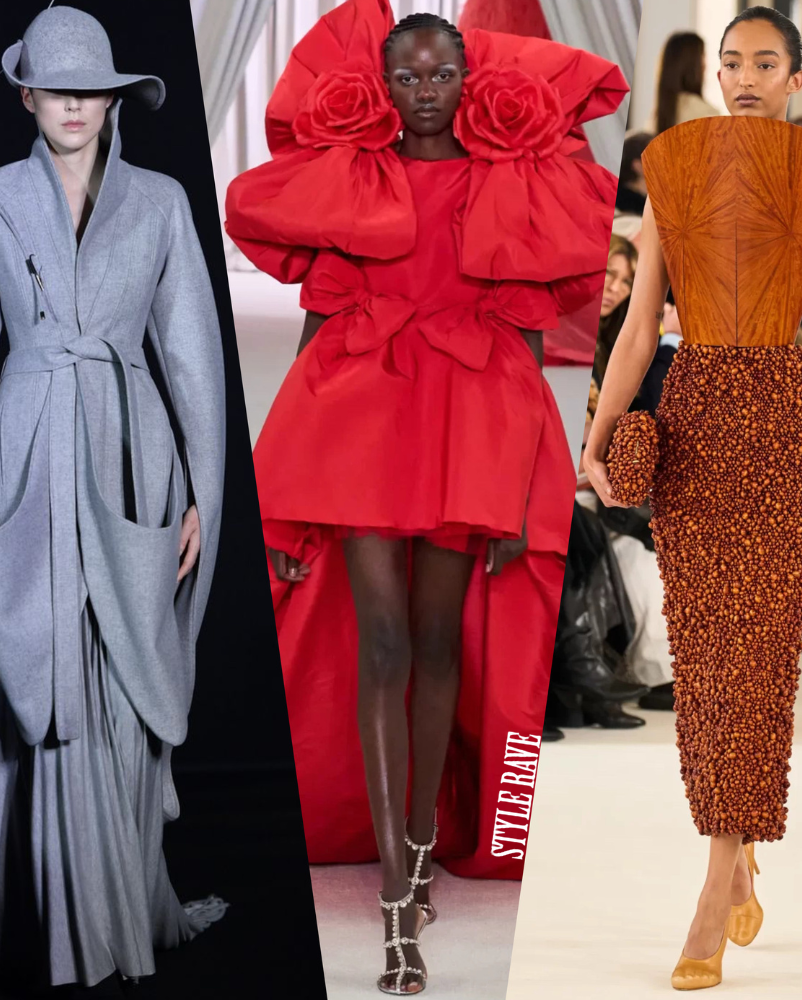
Malik Afegbua, a Nigerian filmmaker and artist, is dispelling myths about African beauty, particularly among the older age.
Today’s digital culture has made artificial intelligence a popular topic. Despite being a contentious technological advancement, you can tell how many people are preparing for an AI world by just scrolling through your social media page.
The internet went wild over Malik Afegbua’s fashion show, which featured images of classy, old-fashioned seniors wearing the sexiest African garb.
The Fashion Show for Seniors photo series has received over 100,000 likes on social media and sparked debate about whether computer-generated art can truly replace human creativity.
Meet the Nigerian AI artist redefining the older generation’s style.
Nigerian filmmaker and artist Malik Afegbua is challenging the misconceptions around African beauty, especially among the older generation.Content Courtesy Of @slickcityceo #nairobifashionhub #africafashion pic.twitter.com/96BuCipnNg
— Nairobi fashion hub (@FashionNairobi) January 18, 2023
Malik Afegbua organized a fashion show for seniors last month as his debut runway event. The showcase defied every fashion guideline by having a cast of classic males and attractive old-fashioned women. Senior models from Afegbua strolled down the catwalk while dressed in natural tones.
Some had their gele headdresses elegantly folded, while others had their outfits expertly arranged with overlapping pieces. The models provided a range of modern flare and vintage majesty that is particularly Nigerian, with the stately air of senior gentlemen.
The ground-breaking runway extravaganza by Afegbua received a lot of praise. It was nearly impossible to persuade his models, who were admired for their regal appearance, that their experience wasn’t real. However, neither they nor it was the case. The world is a fabrication. False characters have been created. All of it is idealistic, Afegbua told ESSENCE.
The models, the clothes, and the complete Fashion Show for Elders were inventions of the artist or, more precisely, an artificial intelligence-powered embodiment of his genius.
One of Afegbua’s numerous creative interests is pushing the boundaries of digital art, yet his daily work as a filmmaker takes up much of his attention.
The director, who was born in Nigeria, works with his production firm, Slickcity Media, to create advertisements, movies, and documentaries.
He is now developing a Netflix documentary about Nike Davies-Okundaye, a Nigerian textile designer and recognized fashion icon around the world. This year will see the release of the biopic. Additionally, he co-produced and directed the second and third seasons of the Netflix documentary series Made By Design, which celebrates African creative genius.
I spoke with the multimedia artist through video call when he was at home in Lagos. He discussed the impact of technology on the development of art, the bizarre experience of becoming instantaneously popular, and the moving motivation for his Fashion Show for Elders.
Regarding AI and the future of the arts.
Since its early inception into the cultural zeitgeist, the idea of artificial intelligence has advanced significantly. The Wizard of Oz, a 1939 motion picture, introduced the public to the archetype of an artificially intelligent robot. The idea was first presented in the image of the “Tin man,” a mechanical man without a heart who personifies human characteristics. As AI technology advanced, so did its applications.
The creative vision that Afegbua has for AI is only partially realized in his Fashion Show for Elders. Ese, my wife, and I both write. She creates screenplays and movies. Additionally, we cannot afford to make the movies that we write. We would require a sizable studio, personnel, and various overhead.
We’ll get there eventually, but in the meantime, technology allows us to accomplish so much.
Different mediums of art have different perspectives on how technology and art should coexist. Concerns about what AI means for the future of artists have been expressed by several. Many people think that machine-generated pictures will kill the artist, much as some claim that the popularity of music videos destroyed the radio star.
That anxiety is not shared by Afegbua. Instead, he accepts AI as a way to improve creativity in people.
Artists and buyers should both accept the inevitable if the astonishingly lifelike models used in his virtual fashion show are any hint of what is achievable in art with AI.
When the elders broke the internet.
Afegbua’s virtual runway display went viral on social media in a matter of minutes. He was surprised by the prompt response, saying, “I honestly wasn’t expecting it. I anticipated around 20 comments and a few friend reposts. He received far more than that. My phone kept buzzing nonstop. It spread all over again. Everyone was tagging me all over the timeline after The Shade Room tweeted it, he claimed.
Afegbua’s email and direct messages (DMs) were inundated with demands for interviews from social media blogs, television networks, and reporters (including those from the present company) from all over the world within an hour of publishing his vividly melanoid AI-generated models.
Afegbua had 3,000 Instagram followers before sharing his Fashion Show for Elders, and he now has over 35,000.
“I received many touching comments from individuals all throughout the world expressing how it affected them. I received messages from elderly individuals who had lost friends and spouses, as well as from young people who missed their grandparents. I’ve received thousands of prayers and thank-you notes from folks. Thousands,” he remarked.
None of us could have imagined that the dignified elders who sparked our communal pride were motivated by heartbreak.
The virtual show serving as the essential catharsis for a creative in distress was something we also could not have foreseen.
Afegbua was so overwhelmed by the warm welcome that it took him some time to understand its significance. In fact, he admitted, it was rather overpowering. “But I understand now.
For me, this endeavor was personal.
I believe that resonated with folks. Many individuals who are going through a lot of difficulties, like I was when I made it, might relate to it. So perhaps it really is a worldwide phenomenon, Afegbua speculated.
Every day, Afegbua talks to his mother, Elizabeth. The two are connected in a way where they ask each other for counsel and find excitement in recounting mundane daily activities. It’s deep with my mum,” he remarked. “I’m 38 now.
I reflect on all of our discussions and all of the teachings Mom has imparted.
Afegbua, one of six kids, claims that his siblings and the family’s grandmother get along well. She deserves the privilege. “Before he retired, my father worked as a pilot, therefore he frequently traveled from one nation to another. So, our mother was with us most of the time. She had direct contact with each and every one of us, he claimed.
Afegbua, who is now a spouse and father, recently confronted one of his greatest fears.
Early last year, after a 12-hour journey from Nigeria to Atlanta, the relationship between him and his mother almost came to an end.
On the jetway at Hartsfield airport, she had a crippling stroke. She suffered several strokes. He remarked, “It was awful.
The family had a very hard time processing the circumstance because it happened suddenly and unexpectedly. Thankfully, Elizabeth’s condition started to get better.
She remained on life support for a long, but Afegbua claimed that she kept improving. “God operates in a strange manner. Every day as a family, we prayed. Every single one of us has a very close relationship with our mother.
Although the path to recovery has been difficult and long, Afegbua is incredibly grateful that his mother is still alive. But he claimed that the experience of almost losing her changed something about him.
For a long time, I was unable to speak with her. Due to all the aftereffects of the stroke, we were unable to converse. Months went by so quickly. I was reflecting on her in a variety of ways, including our pleasant interactions and chats. “Everything is shared with us,” he stated.
Malik Afegbua’s fashion show, which displayed photos of elegant, old-fashioned seniors in the chicest African attire, took the internet by storm. pic.twitter.com/ZFSnz95pXP
— Nairobi fashion hub (@FashionNairobi) January 18, 2023
“During that time, I had several life events that I was unable to share with her. And it put me in a peculiar situation. Afegbua turned to his art for solace when he was experiencing an existential crisis.
“For me, creating is like therapy. I find it to be calming and relaxing. I also utilize it to aid in my emotional processing, he said.
What he experienced at the time was a sobering understanding of the frailty of life and a gratitude for old age as a blessing that should not be taken for granted.
He considered his mother, who now required the assistance of family members and medical experts to meet her basic necessities. All the grown children in his situation sprang to mind. He reflected on how senior persons are discarded by society. “I believe that seniors are marginalized in society once they reach an age or stage in life where they are unable to take care of themselves or participate as they once did. He said, “It’s like we just dumped them somewhere to wait to die.
“I got these very emotional messages from a lot of people all over the world, saying how it touched them.
I got messages from elderly people who’d lost spouses and friends, & young ones that missed their grandparents. I’ve had people send me prayers, I’ve had thousands of thank U pic.twitter.com/1dCbMxZms2— Nairobi fashion hub (@FashionNairobi) January 18, 2023
The artist discovered his muse at that precise moment of inspiration.
“I wanted to design something that will alter how we perceive things” (of seniors). Elderly Black people have experienced so much injustice and been put down, he remarked.
Would it be possible to depict them as Kings and Queens?
What if I demonstrated their self-assurance and fortitude?
Content courtesy of Essence, Malik Afegbua, Slick City & NFH
Related




